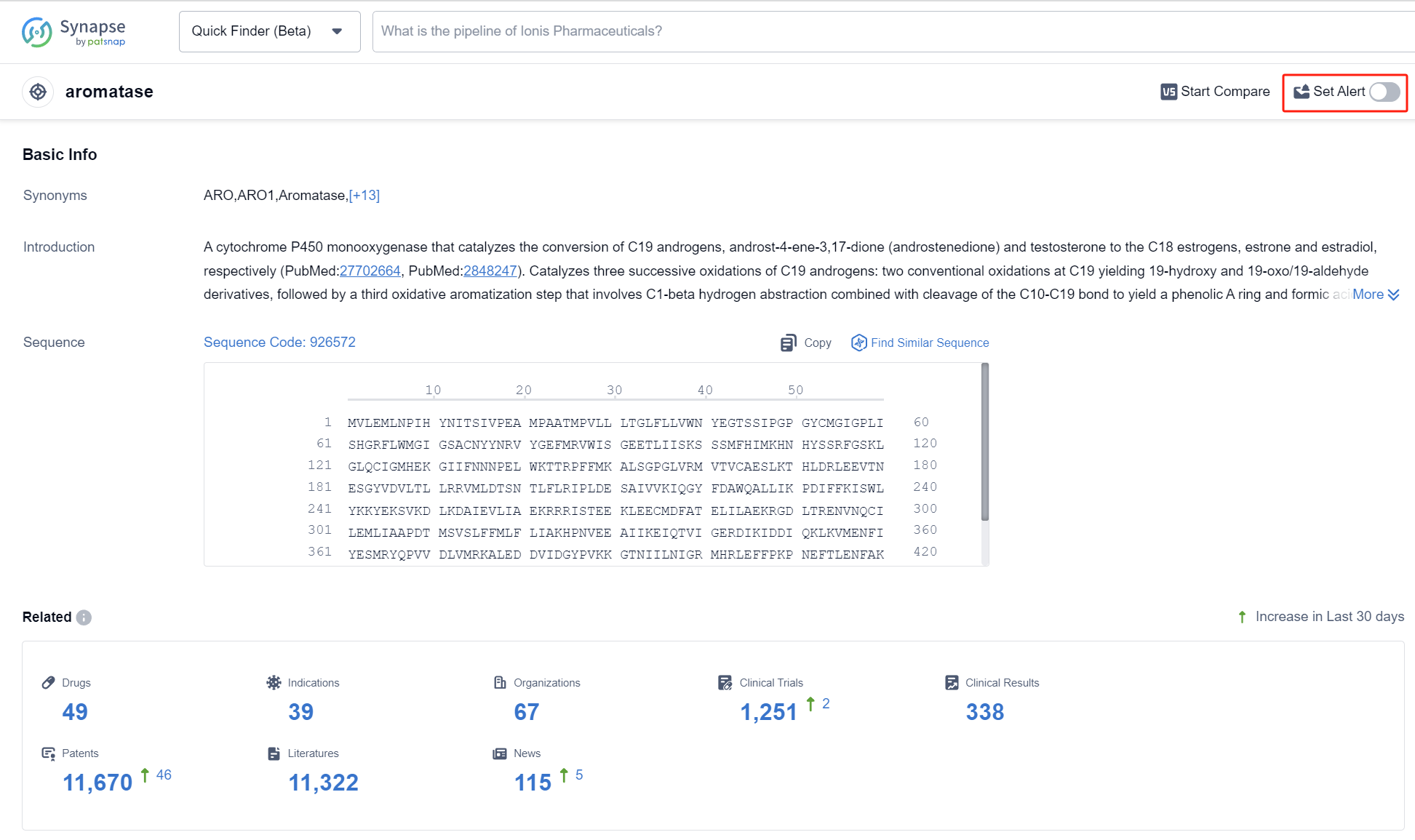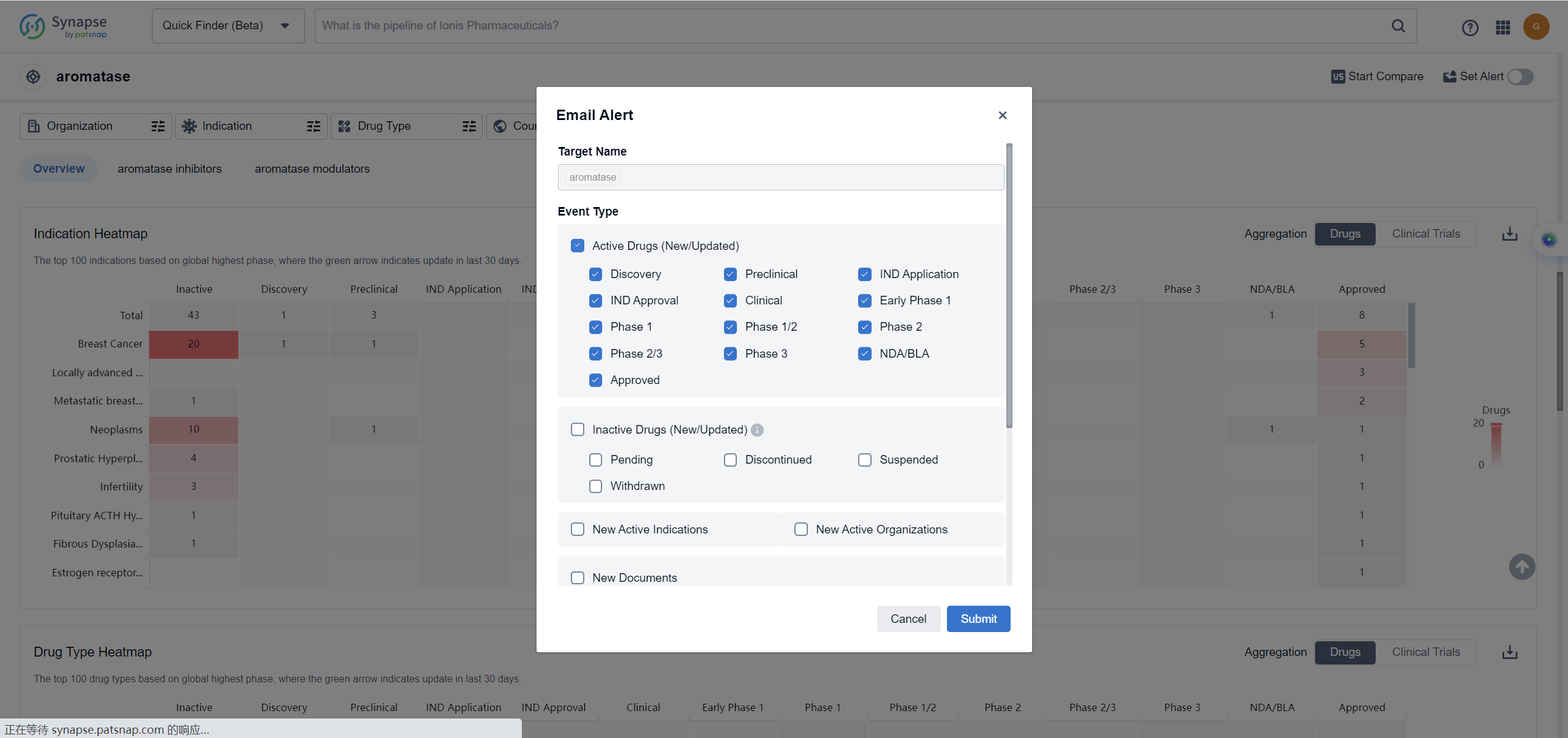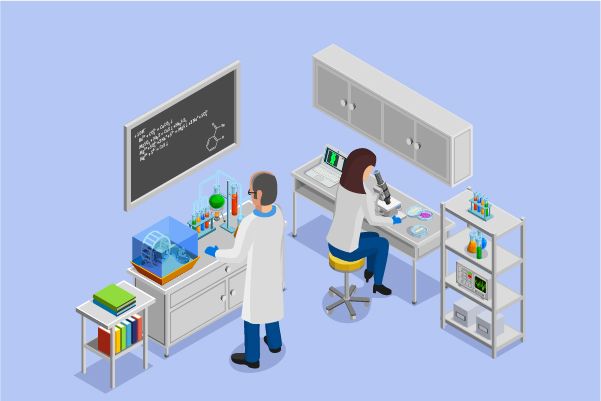What are aromatase inhibitors and how do you quickly get the latest development progress?
Aromatase is an enzyme that plays a crucial role in the human body by converting androgens (male hormones) into estrogens (female hormones). It is primarily found in various tissues, including the ovaries, testes, adrenal glands, and fat cells. Aromatase is responsible for the synthesis of estrogen, which is essential for the development and functioning of reproductive organs, bone health, and regulation of the menstrual cycle. Additionally, aromatase is involved in the production of estrogen in postmenopausal women, as it becomes the primary source of estrogen after the ovaries stop producing it. Understanding the role of aromatase is vital in the development of drugs targeting hormone-related conditions such as breast cancer and hormonal imbalances.
The occurrence and development of most breast cancers are closely related to estrogen. Endocrine treatment targeting estrogen is a main treatment method for estrogen receptor (ER) positive breast cancer. In women before menopause, estrogen is primarily secreted by the ovaries. In postmenopausal women, more than 70% of estrogen comes from adrenal-derived androgen precursors transformed via aromatase enzyme. In postmenopausal breast cancer, the estrogen comes primarily from the cancer tissue and pericancerous tissue. Aromatase inhibitors (AIs) work by suppressing the activity of the aromatase enzyme in the cancer tissue, thereby lowering estrogen levels to inhibit cancer cell proliferation.
How do they work?
An aromatase inhibitor is a type of medication that is used in the field of biomedicine to treat certain types of breast cancer. Aromatase is an enzyme that plays a crucial role in the production of estrogen, a hormone that can promote the growth of breast cancer cells. Aromatase inhibitors work by blocking the activity of this enzyme, thereby reducing the production of estrogen in the body. By lowering estrogen levels, aromatase inhibitors help to slow down or stop the growth of hormone receptor-positive breast tumors. These medications are often prescribed to postmenopausal women with hormone-sensitive breast cancer and can be used as an adjuvant therapy or as a treatment for advanced or metastatic breast cancer. Aromatase inhibitors are typically taken orally in the form of tablets or pills and may have side effects such as joint pain, hot flashes, and increased risk of osteoporosis. Regular monitoring and follow-up with a healthcare professional are important while using aromatase inhibitors to ensure their effectiveness and manage any potential side effects.
List of aromatase Inhibitors
The currently marketed aromatase inhibitors include:
- Letrozole/Ribociclib Succinate
- PHL-00801
- Exemestane
- Letrozole
- Anastrozole
- Formestane
- Aminoglutethimide
- Fadrozole monohydrochloride
- Leflutrozole
- Testosterone/Anastrozole
For more information, please click on the image below.
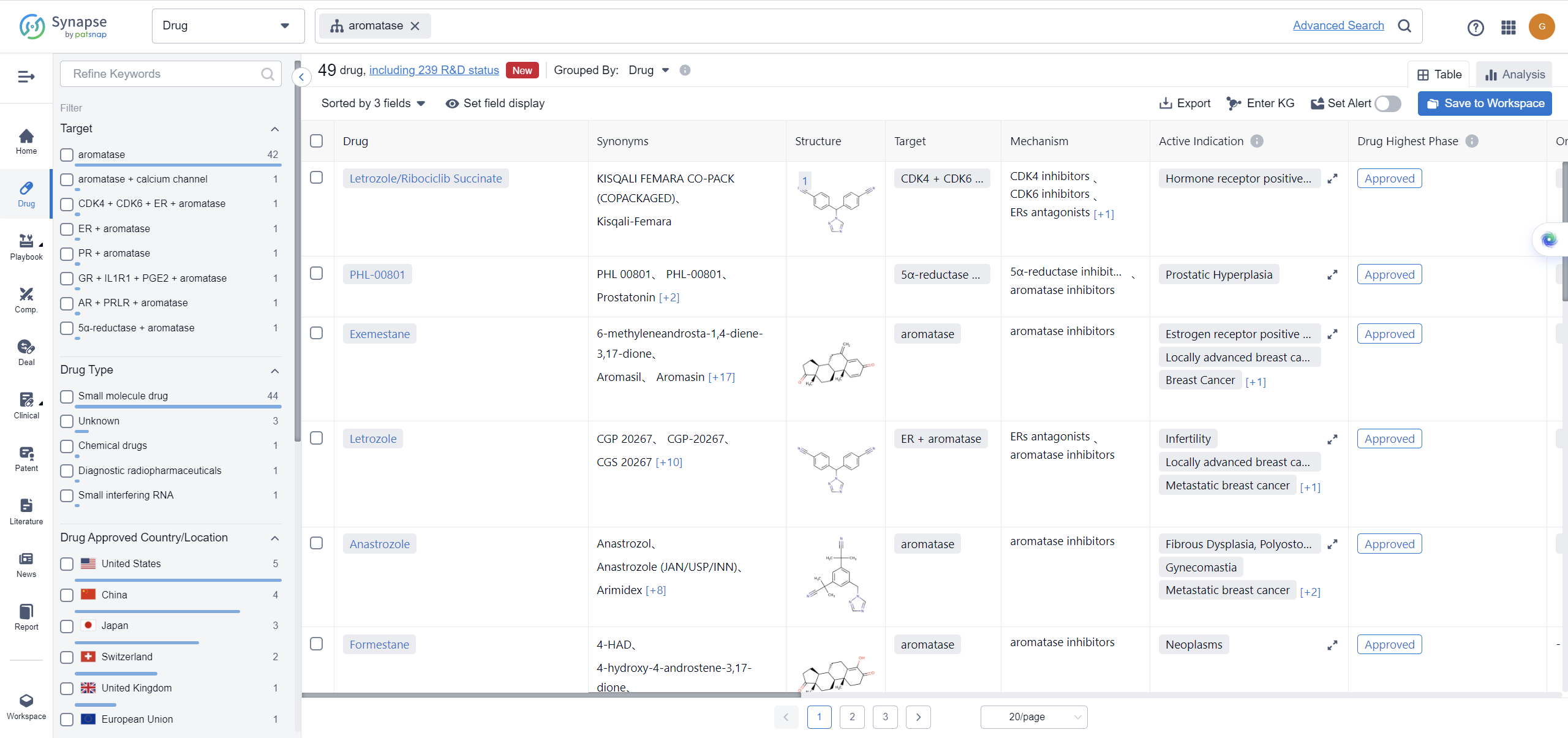
What are aromatase inhibitors used for?
Aromatase inhibitors are primarily targeted at postmenopausal or premenopausal high-risk individuals in combination with off-field treatment (OFS) for endocrine therapy purposes. For more information, please click on the image below to log in and search.
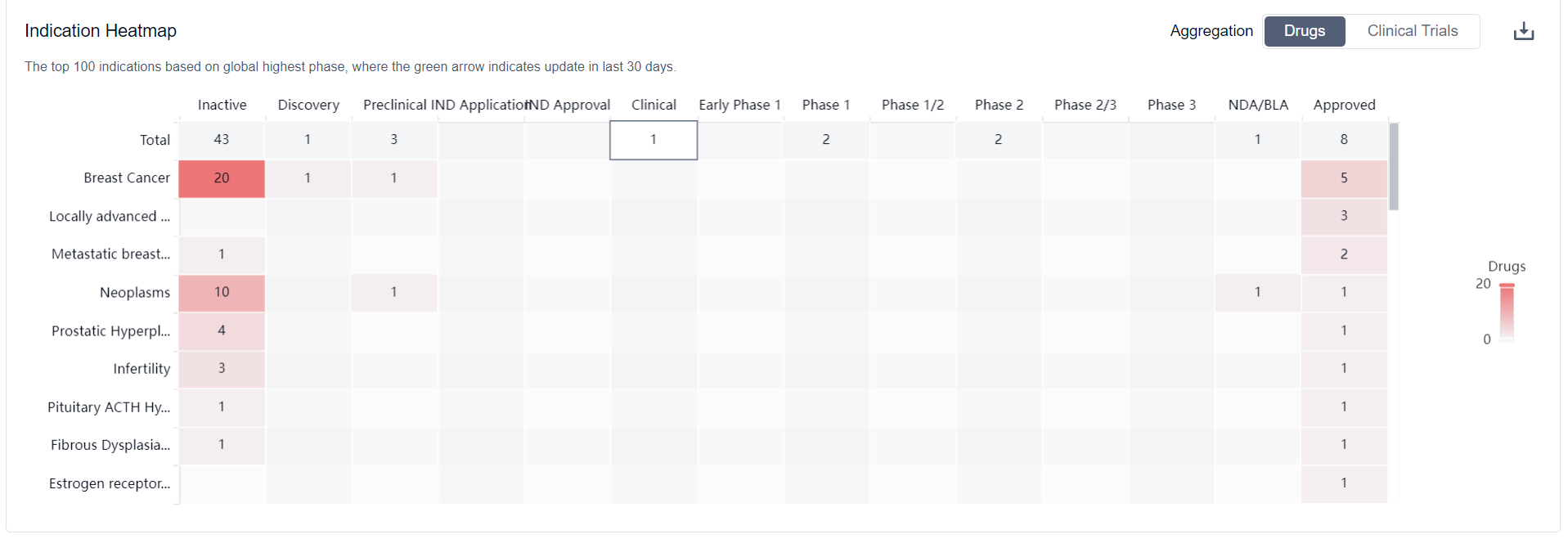 How to obtain the latest development progress of aromatase inhibitors?
How to obtain the latest development progress of aromatase inhibitors?
In the Synapse database, you can keep abreast of the latest research and development advances of aromatase inhibitors anywhere and anytime, daily or weekly, through the "Set Alert" function. Click on the image below to embark on a brand new journey of drug discovery!

